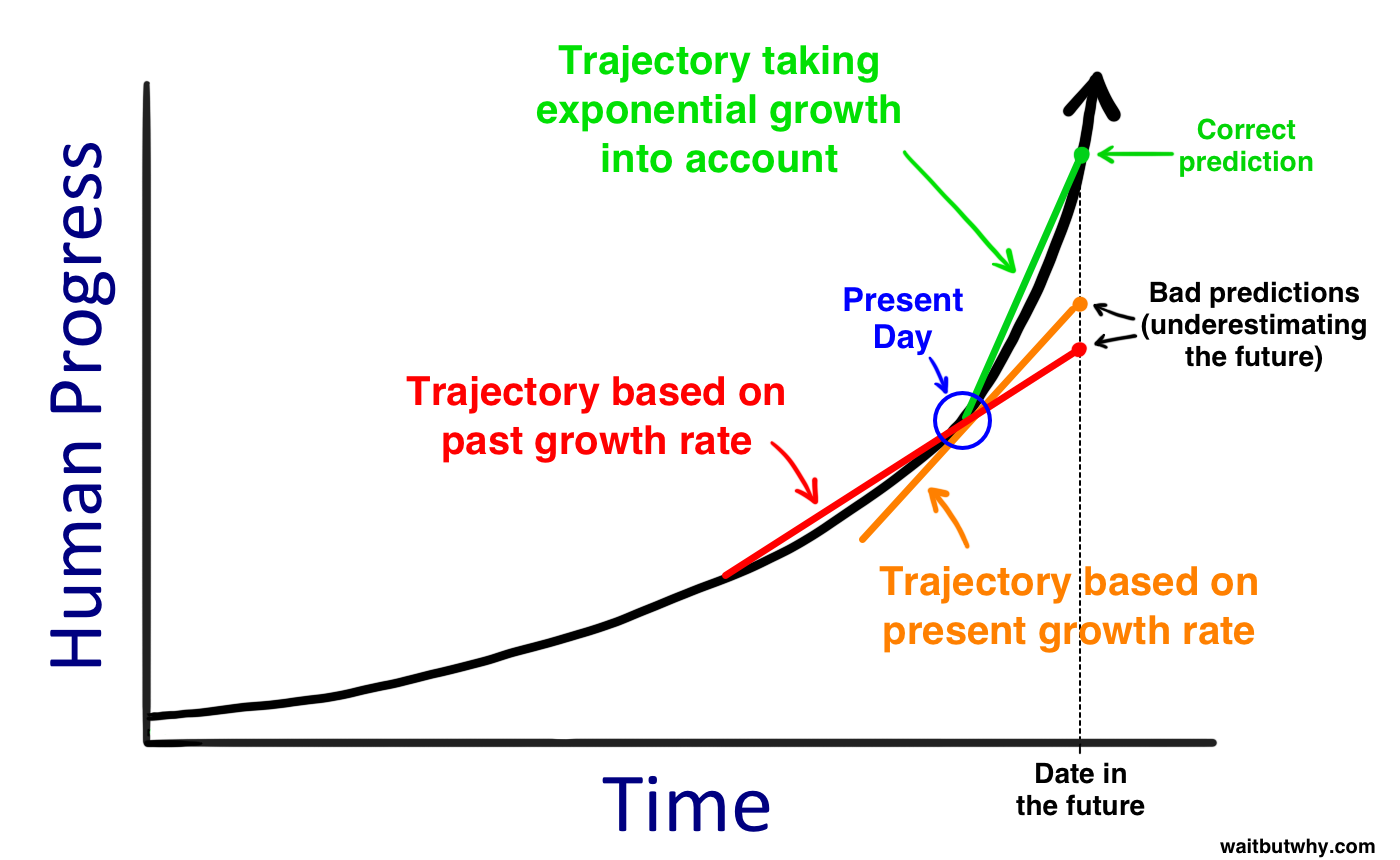More Wrong
There is no question that our descendants will look back on us as incredibly primitive; the question is how?
What will they take for granted that we can't even imagine? What will they laugh at us for getting wrong?
Thinking back from the future is a useful way of knocking ourselves off of our high horses. The fact that we think we have it mostly figured out is proof positive that we don't. The magic is in trying to figure out the ways in which we're wrong.
Tim Urban has this great 2015 essay, The AI Revolution: The Road to Superintelligence in which he introduced his idea of a Die Progress Unit:
"In order for someone to be transported into the future and die from the level of shock they’d experience, they have to go enough years ahead that a “die level of progress,” or a Die Progress Unit (DPU) has been achieved. So a DPU took over 100,000 years in hunter-gatherer times, but at the post-Agricultural Revolution rate, it only took about 12,000 years. The post-Industrial Revolution world has moved so quickly that a 1750 person only needs to go forward a couple hundred years for a DPU to have happened."
The acceleration means that we are going to be wrong about things in the nearer and nearer future than our ancestors ever were.

There's that rationalist blog Less Wrong, thus named because "Each day, we aim to be less wrong about the world than the day before."
But the world is dynamic. It changes. As long as we're progressing, we'll continue to be More Wrong each day than the day before.
Sometimes, though, understanding jumps.
It's easy to believe this at the beginning of any new year, but I can't shake the feeling that 2025 is going to be a jump year.
As Nikola Tesla said, “The day science begins to study non-physical phenomena, it will make more progress in one decade than in all the previous centuries of its existence.” I think that day is going to come in 2025.
In the last essay of last year, I called it The Return of Magic. Whether it comes in the form of a slow awakening -- it's amazing how many people told me that they were feeling it, too, after reading that essay -- or something more dramatic, like Disclosure, I can't wait to see what happens as we treat ideas that were previously too weird to touch as seriously as they deserve.
That starts with acknowledging that we're way More Wrong than we think. Which we are, certainly. With delighting in that fact and gleefully and tenaciously working to figure out just where and how we're wrong, where and how we're only seeing a sliver of a much larger and more beautiful thing.
That's where the magic is. And I think 2025 is going to be a Year of Magic.
Happy New Year.